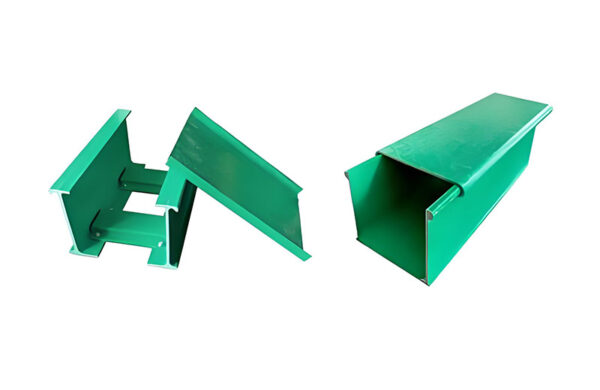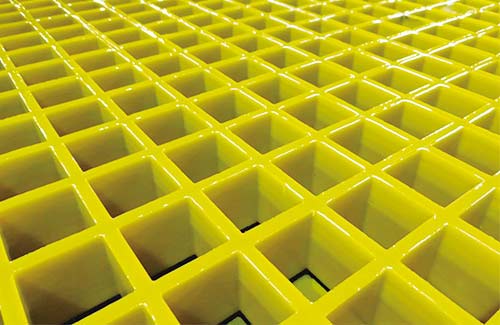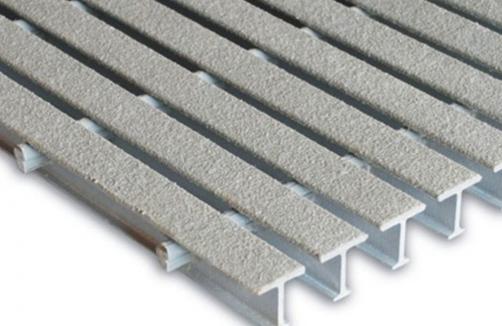Sistema di strutture in FRP per impianti chimici: Migliorare la sicurezza e la durata in ambienti industriali
Introduzione
Gli impianti chimici sono componenti infrastrutturali critici delle industrie moderne, che trattano materiali pericolosi in condizioni di alta pressione. I materiali da costruzione tradizionali, come l'acciaio e il cemento, sono stati a lungo lo standard, ma i loro limiti in termini di corrosione, peso e costi di manutenzione hanno portato all'esplorazione di alternative avanzate. Le strutture in polimeri rinforzati con fibre (FRP) sono emerse come una soluzione promettente, in grado di offrire maggiore sicurezza e durata negli ambienti industriali. Tuttavia, permangono dubbi sulla loro fattibilità, sull'efficacia dei costi e sulle prestazioni a lungo termine. Questo articolo esplora tali questioni e fornisce indicazioni su come le strutture in FRP possano rivoluzionare la costruzione di impianti chimici.
Cosa sono le strutture in FRP?

Le strutture in FRP sono materiali compositi realizzati con una combinazione di fibre (come quelle di carbonio o di vetro) e una matrice polimerica (come l'epossidica o il poliestere). Questi materiali offrono eccezionali rapporti forza-peso, resistenza alla corrosione e proprietà di isolamento elettrico, che li rendono ideali per gli impianti chimici dove l'esposizione a sostanze corrosive è comune. A differenza dei materiali tradizionali, gli FRP non arrugginiscono e non si degradano se esposti a sostanze chimiche, garantendo un'integrità strutturale a lungo termine.
Le strutture in FRP sono sicure per gli impianti chimici?
Una delle preoccupazioni principali di qualsiasi nuovo materiale da costruzione è la sicurezza. Gli impianti chimici operano in ambienti in cui perdite, incendi e cedimenti strutturali possono avere conseguenze catastrofiche. Le strutture in FRP rispondono efficacemente a queste esigenze. La loro natura non conduttiva riduce il rischio di rischi elettrici, mentre la loro elevata resistenza agli attacchi chimici garantisce che rimangano intatte anche in presenza di materiali pericolosi. Inoltre, gli FRP possono essere progettati per soddisfare i più severi standard di sicurezza, offrendo una soluzione affidabile per le applicazioni industriali critiche.
Quali sono le implicazioni di costo dell'utilizzo di strutture in FRP?
Il costo è spesso un fattore decisivo nei progetti edilizi. Sebbene i materiali FRP possano essere più costosi in partenza rispetto alle opzioni tradizionali, i loro vantaggi a lungo termine spesso superano l'investimento iniziale. Gli FRP richiedono una manutenzione minima, riducendo i costi operativi nel tempo. Inoltre, la loro leggerezza riduce le spese di trasporto e installazione. Se si considera la minore necessità di riparazioni e la maggiore durata, le strutture in FRP possono essere una scelta economicamente vantaggiosa per gli impianti chimici.
Quanto sono resistenti le strutture in FRP negli ambienti industriali?
La durata è fondamentale negli impianti chimici, dove le strutture sono soggette a condizioni estreme. Gli FRP eccellono in questo senso, dimostrando una resistenza superiore alla corrosione, ai raggi UV e alle sollecitazioni termiche. A differenza del calcestruzzo, che può creparsi e sfaldarsi sotto carichi pesanti, gli FRP mantengono la loro integrità strutturale anche in ambienti difficili. Questa resistenza si traduce in una maggiore durata, riducendo al minimo la necessità di frequenti sostituzioni e garantendo prestazioni costanti.
Condividere le intuizioni: Casi di studio e storie di successo
Diversi impianti chimici hanno già implementato con successo strutture in FRP, ottenendo risultati notevoli. Ad esempio, un impianto petrolchimico in Sud America ha sostituito i suoi vecchi serbatoi in acciaio con unità in FRP, riducendo in modo significativo i guasti dovuti alla corrosione. Allo stesso modo, un impianto di lavorazione chimica in Europa ha utilizzato tubazioni in FRP per gestire gli acidi corrosivi, eliminando la necessità di costose sostituzioni di materiale. Questi casi di studio evidenziano i vantaggi pratici delle strutture in FRP e ne convalidano l'efficacia nelle applicazioni reali.
Conclusione
Le strutture in FRP offrono una soluzione convincente per migliorare la sicurezza e la durata degli impianti chimici. Rispondendo a domande chiave su sicurezza, costi e durata, gli FRP hanno dimostrato di essere un'alternativa affidabile ed efficiente ai materiali tradizionali. Con la continua evoluzione delle industrie, l'adozione di materiali avanzati come gli FRP svolgerà un ruolo cruciale nel garantire operazioni industriali più sicure e sostenibili. Sfruttando i vantaggi delle strutture in FRP, gli impianti chimici possono raggiungere l'eccellenza operativa a lungo termine, riducendo al minimo rischi e costi.







